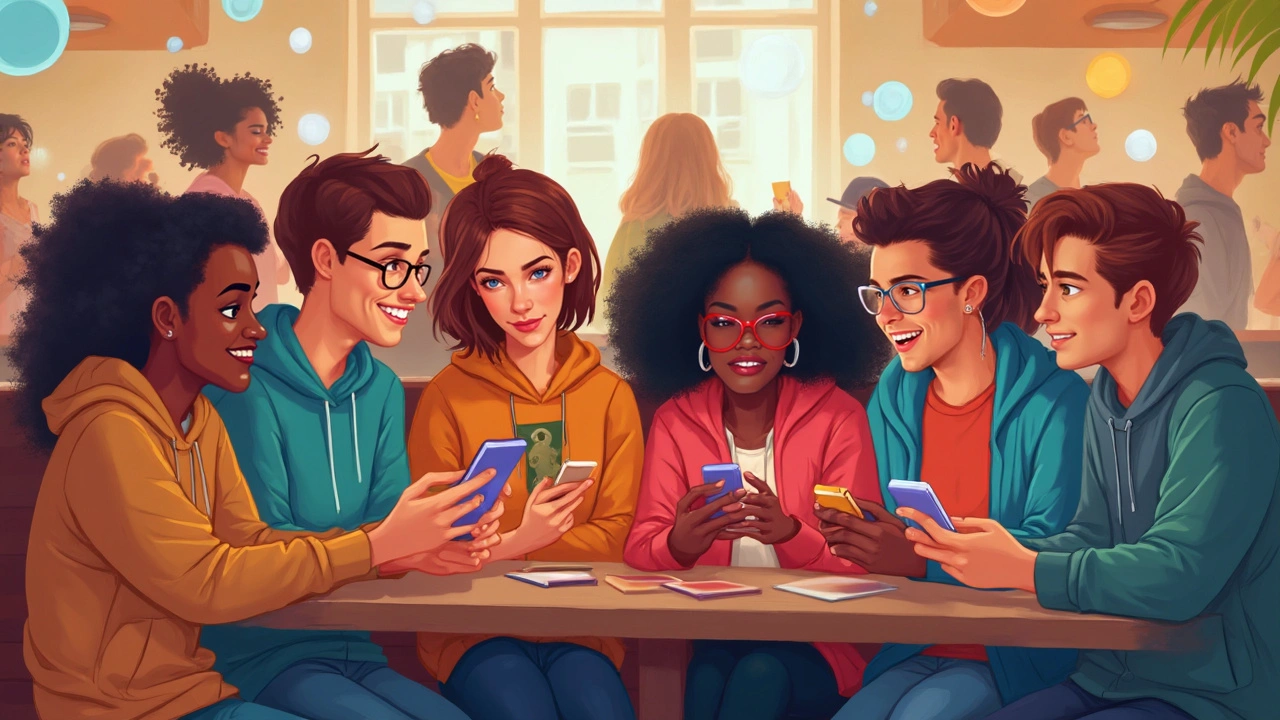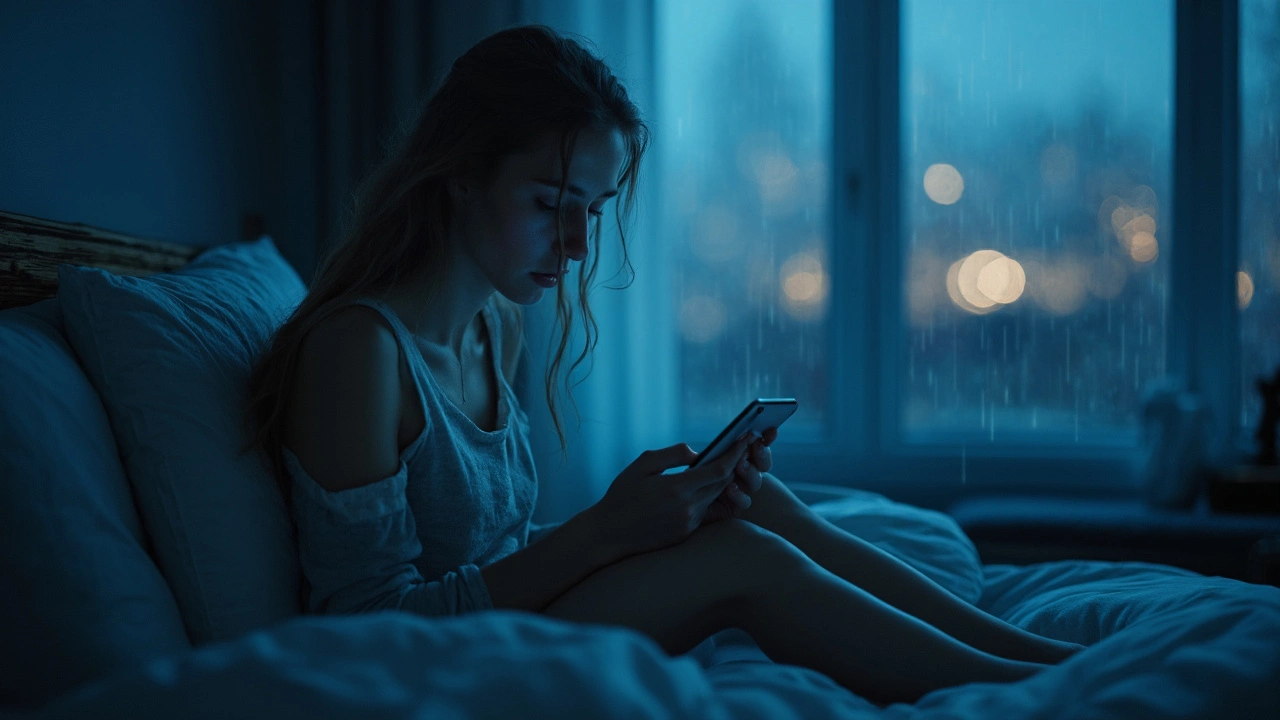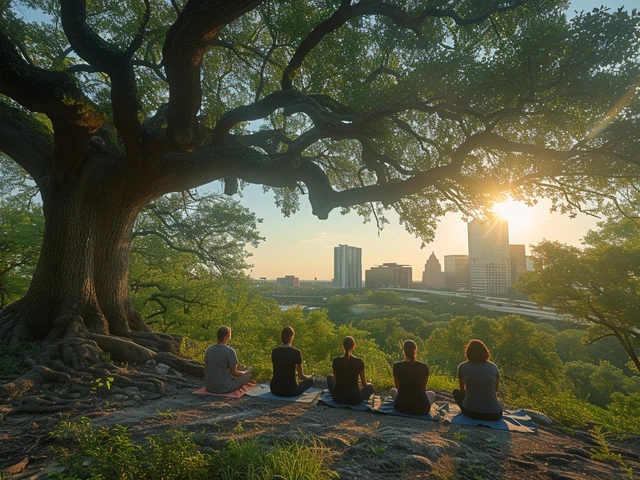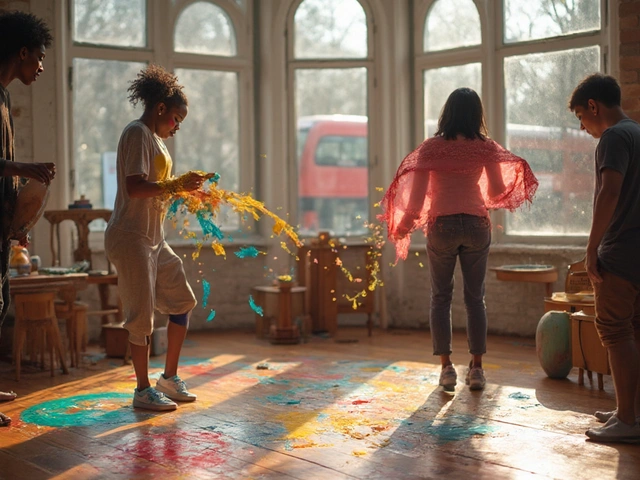Scrolling through Instagram late at night? You’re not the only one losing sleep over it—and your mind might be paying the price. It's wild how one angry tweet or a friend’s fancy vacation pics can sit in your head rent-free, shaping your mood and maybe even your self-worth.
Most people didn’t sign up for the side effects. There’s this constant feed of updates, opinions, and highlight reels—so it’s easy to feel like you’re not measuring up or that everyone else has life figured out. The thing is, your brain isn’t built for non-stop comparison or hundreds of opinions a day. That’s why anxiety, FOMO, and even waves of sadness can sneak up right after a social scroll session.
You don’t have to quit social media cold turkey to protect your headspace, though. There are actually some simple ways you can take back control—and even make your feeds a little kinder to your mental health. Keep reading to find out how all this stuff adds up and what you can do about it.
- The Sneaky Impact: How Social Feeds Affect Your Mood
- Comparison Culture: Why We Feel Less Than
- Anxiety, Depression, and Digital Life
- Real Stories: Everyday Benefits and Downsides
- How to Get Your Power Back
- What Psychologists (and Regular People) Recommend
The Sneaky Impact: How Social Feeds Affect Your Mood
Ever notice how a glance at your feed can flip your mood? That's not an accident. Platforms are designed to grab your attention—and keep you scrolling with things that spark strong reactions. A study out of the University of Pennsylvania showed that people who limited their social media use to 30 minutes a day actually felt less lonely and less depressed after three weeks. Translation: more screen time, more problems—at least for your headspace.
When you check your phone, your brain gets tiny hits of dopamine, the "feel-good" chemical. Short videos, likes, or funny memes can make you feel good for a second. But constant refreshing wears you out. People start to feel anxious if their post doesn’t get enough likes, or annoyed by negative news and online drama. Even the creators admit it. Take this line from former Facebook president Sean Parker:
“It literally changes your relationship with society, with each other... God only knows what it’s doing to our children’s brains.”
Algorithms also tend to show dramatic or extreme posts because they keep us clicking. That means the negative stuff floats to the top. Over time, that can make the world seem more stressful or negative than it really is.
Want to see how subtle these effects are? Here’s what can impact your mood while using social media:
- Seeing friends hang out without you can sting and make you feel left out instantly. That’s not just in your head—it’s called "social exclusion" and it registers as real pain in the brain.
- Too many "bad news" headlines make you feel helpless or more worried about the world than you used to be.
- Endless scrolling eats up your time, so you skip things that actually help your mood, like moving your body or calling a friend.
The good news? Once you realize how this stuff works, you’ve got options. The next sections break down some ways to make feeds work for you—not against you.
Comparison Culture: Why We Feel Less Than
Ever looked at someone’s post and instantly felt like you’re missing out? Social media makes it way too easy to compare your behind-the-scenes with someone else’s highlight reel. You’re not alone—almost everyone gets caught in that trap. Data from the Royal Society for Public Health in the UK found that 70% of young people reported feeling worse about themselves after scrolling past other people’s posts.
The problem? What you see online is often filtered, posed, and edited. Nobody’s showing the dishes piling up in their sink or their bad hair day selfie. When you’re fed a steady diet of picture-perfect images, your brain starts believing that’s the norm. That’s where the crash in self-esteem comes from, especially among teens and young adults.
| Study/Source | Key Finding |
|---|---|
| Pew Research Center, 2023 | 45% of teens said social media makes them feel pressure to present themselves in a certain way |
| Journal of Social and Clinical Psychology, 2018 | Limiting social media use to 30 minutes/day reduced feelings of depression and loneliness in young adults |
| Royal Society for Public Health, 2017 | Instagram ranked as the worst platform for young people’s mental health |
It’s not just photos—likes and comments can turn into a scoring system for your worth. Have you ever posted something, waited for the notifications, and wondered if you’d done something wrong when they didn’t come? That’s not your imagination. Social platforms are literally designed to keep you checking back for that quick confidence boost or, sometimes, that harsh drop when validation doesn’t come.
So how do you stop this cycle? Start by social media curating your own feed. Unfollow or mute accounts that make you feel down about yourself. Follow people who post real moments, not just perfect ones. The less you measure your life against someone else, the better you’ll feel about your own journey—messy sinks and all.
- Remind yourself that everyone’s story is different—social posts don’t tell the whole truth.
- Check in with how you feel after scrolling: More anxious or less? Adjust what and who you follow based on that.
- Set regular breaks from your feed, especially if you notice yourself spiraling into comparison.
You’re not meant to keep up with everyone. Dial back, be kind to yourself, and remember: what’s online is just a tiny slice of someone’s reality.
Anxiety, Depression, and Digital Life
The link between social media and mental health isn’t just hype. Studies from places like Pew Research and the Royal Society for Public Health have pointed out some not-so-great side effects, especially for teens and young adults. Constant notifications and the pressure to respond fast can spike your anxiety levels. Ever feel jittery waiting for replies or panicky over the number of likes? That’s your brain reacting to all the social input.
Depression is another huge concern. Spending more hours online often connects with feeling sadder, lonelier, or less motivated. People who scroll for more than three hours a day are way more likely to show symptoms of depression, according to a 2023 survey published by the American Journal of Psychiatry. It’s not just about seeing negative stuff, but also feeling left out or ignored by online circles.
Here’s a quick look at some numbers:
| Platform | Percent Reporting Anxiety | Percent Reporting Depression |
|---|---|---|
| 39% | 34% | |
| Snapchat | 29% | 31% |
| 22% | 26% |
(Source: Royal Society for Public Health, 2024 survey, ages 16–24)
Honestly, the apps are designed to keep you scrolling. Infinite feeds, auto-play videos, and push notifications hijack your attention. When you get a like or comment, your brain gets a quick hit of dopamine—a feel-good chemical. But that rush fades fast, so you keep checking for another boost. Over time, this cycle can drag your mood down, especially if you’re not careful with your screen time or who you follow.
If your anxiety or sadness seems to get worse right after going online, you’re not imagining things. It helps to pay attention to those patterns—literally write down what you notice the next time you log off feeling drained or restless. That’s the first step in doing something different, which is way more powerful than just blaming the apps themselves.

Real Stories: Everyday Benefits and Downsides
Honestly, social media isn’t all doom and gloom. For a lot of people, it’s a lifesaver—quite literally, in some cases. I know folks who found real support in online communities during hard times. For instance, there are private Facebook groups for people struggling with depression or new parents looking for advice at 3 a.m. That kind of support is real and can be life-changing, especially for people feeling isolated offline.
But social media also has a sneaky side. Plenty of folks (me included, sometimes) get sucked into negativity or endless comparison. A 2024 Pew Research Center study found that 32% of teens said social media made them feel worse about their own life. People share the good stuff and filter out the bad, so it’s easy to feel left out, even if that’s not the intention. On top of that, cyberbullying is a real problem, and its effects don’t just disappear when you close the app.
I’ve had days where seeing friends posting about promotions or perfect vacations made me feel behind. My spouse, Warren, uses Twitter to stay updated on tech news, and he swears by the positive connections, but even he gets overwhelmed when things turn toxic online. It really depends on what corners of the internet you hang out in and how you use it.
Here’s a quick look at what research and real users are experiencing:
| Benefit | Downside | Source/Fact |
|---|---|---|
| Building supportive communities | Increased anxiety and comparison | 32% of teens say it worsens self-image Pew Research Center, 2024 |
| Staying in touch with friends/family | Cyberbullying & harassment | About 59% of U.S. teens have been bullied online Pew Research Center, 2024 |
| Access to mental health info and help | Sleep issues from late-night scrolling | Studies show blue light delays sleep hormones CDC Sleep Guidelines, 2023 |
The daily reality is messy. It’s not just good or just bad—it’s a mix, and the key is noticing when social media helps you and when it drags you down. That way, you can make small changes without tossing your phone out the window.
How to Get Your Power Back
If you’re feeling drained or down every time you put your phone down, it’s time to put yourself back in the driver’s seat. Taking small, real steps can help you feel way less controlled by your screen and more in tune with your own life.
First off, it’s not just you. A study from Pew Research Center showed that nearly 64% of teens have taken a break from social media because it was too overwhelming or stressful. Even adults admit they feel better after setting some ground rules for their socials.
"Almost everyone who limits their social media use reports improved mood and better sleep. You don’t have to quit—just create better boundaries." — Dr. Jean Twenge, psychologist and author
So, how can you take your power back? Try these tried-and-true moves:
- Social media breaks: Give yourself no-scroll zones, like during meals or the hour before bed. Experts say just 30 minutes less per day can boost your mood.
- Turn off push notifications. Do you really need a ping for every like? Most people find this stops the urge to check every five minutes.
- Curate your feed. Unfollow or mute people and pages that stress you out, bring negativity, or trigger comparison. Add more accounts that make you laugh or teach you something useful.
- Set time limits with built-in phone tools. Most smartphones now let you block yourself from apps after a set amount of daily time—use it!
- Swap scrolling for something practical. Next time you want to open an app out of habit, try reading a page of a book, getting outside, or calling a friend.
Want proof these things work? Check out this quick look at what happens when people cut back just a little:
| Change | Reported Benefit |
|---|---|
| 30-minute social media reduction per day | Reduced anxiety and improved sleep in 55% of adults (University of Pennsylvania, 2020) |
| Turning off notifications | Less distracted, more productive days (Stanford study, 2021) |
| Following positive accounts | Boosted mood and optimism in 40% of users (UK Mental Health Foundation, 2023) |
You don’t have to disappear from the internet to feel better. Just making these small changes—whether it’s unfollowing, setting a timer, or swapping one scroll for a chat—gives you back a lot more control over your mental health.
What Psychologists (and Regular People) Recommend
Let’s cut right to what works when your mental health is feeling the squeeze from endless scrolling. Most experts agree: you don’t have to vanish from social media to stay sane, but swapping mindless habits for healthier ones actually makes a difference.
Quick reality check—Stanford’s 2023 research found that people who set daily time limits (think 30 minutes max) on their most-used social apps had 20% fewer symptoms of anxiety and depression after just two weeks. That’s not magic, just basic boundaries.
- Set a timer: Most of us underestimate how long we’re on our phones. Use built-in screen time limits or third-party apps to keep usage in check.
- Follow with intention: Scrap the accounts that make you feel bad or stressed. Fill your feed with honest, supportive, or funny creators instead.
- Mute, block, unfollow: No explanation needed. If someone’s content messes with your vibes, mute or unfollow—it’s self-care, not drama.
- Check in with yourself: Ask how you feel right after scrolling. Energized or drained? Happy or tense? Notice, then tweak your habits.
- Plan phone-free time: Pick parts of your day—like meals or the hour before bed—to ditch the phone. It helps settle your brain for real-life rest and connection.
Therapists also point out the power of active use (commenting, messaging, posting your own stuff) over mindless passive scrolling. When you actually talk to friends or join a positive community, it can counter some of the negative effects.
Here’s a quick look at stats pulled from recent studies and surveys:
| Tip or Habit | Reported Improvement |
|---|---|
| 30 min max daily use | 20% lower depression/anxiety (Stanford, 2023) |
| Follow positivity-focused accounts | 15% rise in mood ratings (Pew, 2022) |
| Daily app-free hour | Better sleep for 40% of users (Sleep Foundation, 2022) |
And don’t ignore what regular folks do: shaking up your routine, joining private group chats with supportive friends, or starting digital detox weekends. I tried deleting all social apps from my phone for one month—sure, I had major FOMO the first week, but less anxiety and better sleep won out. Warren noticed the change before I did. Sometimes the simplest fixes stick the longest.





